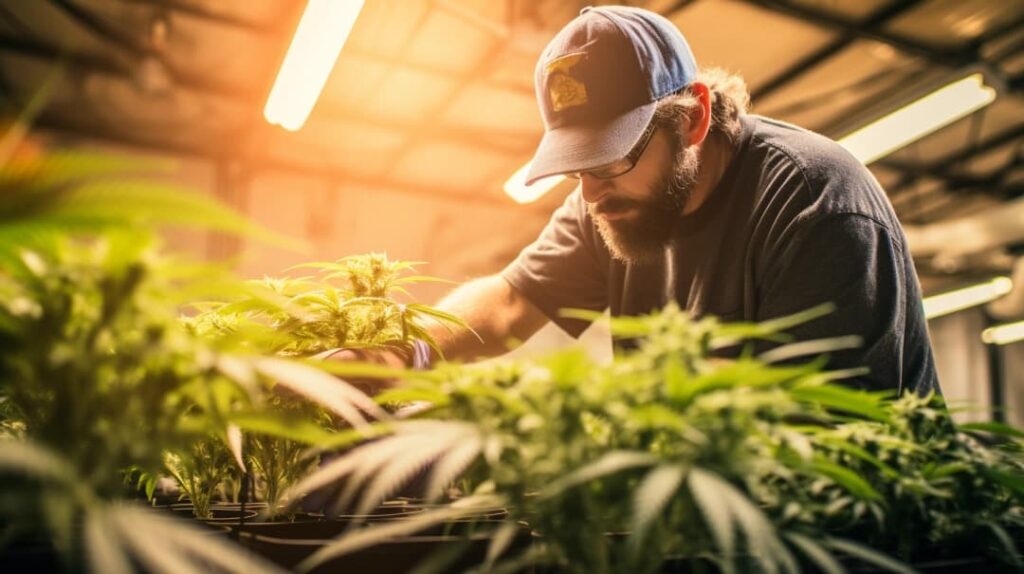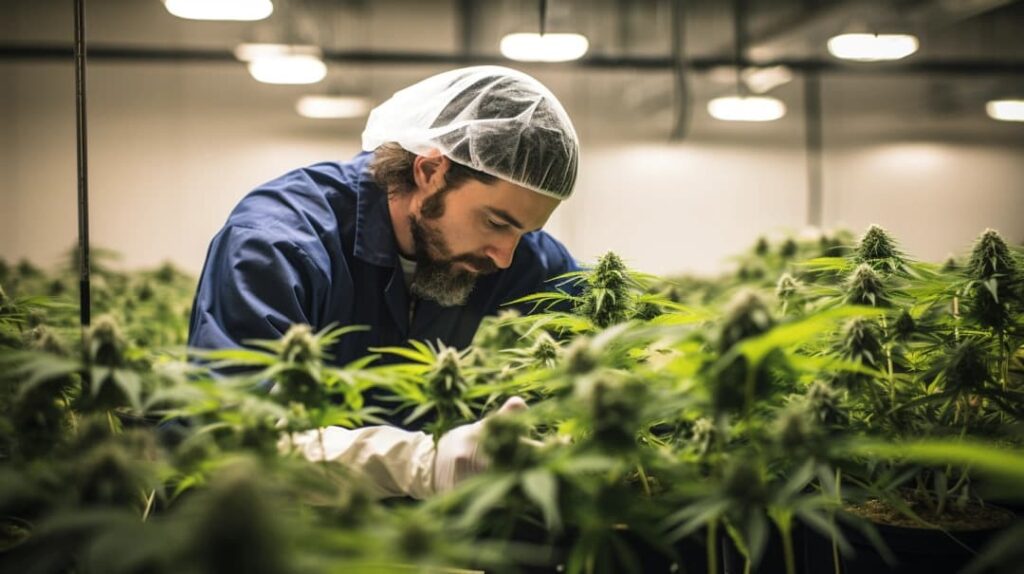Explore how dispensaries align with national standards, adhering to stringent criteria that define organic agriculture. Delve into the intricacies of water management within organic practices, as Denver dispensaries prioritize sustainability in their cultivation processes. This blog unravels the layers of dedication that lead dispensaries to seek organic certification, showcasing a commitment to environmentally conscious and quality-focused cannabis cultivation. Whether you’re a cultivator aiming for organic excellence or a consumer valuing sustainable choices, this exploration sheds light on the rigorous standards shaping Denver’s organic cannabis culture. It’s time to navigate the landscape of organic certification, where dispensaries amplify their commitment to delivering a premium and environmentally responsible cannabis experience.
Importance of Organic Certification
If you’re considering cultivating cannabis in a Denver dispensary, obtaining organic certification is an important step to ensure the quality and integrity of your product. Not only does organic certification guarantee that your cannabis is grown without the use of harmful synthetic pesticides and fertilizers, but it also promotes environmental sustainability. By following organic cultivation practices, you contribute to the preservation of soil health, water conservation, and the overall well-being of the ecosystem.
Additionally, organic cannabis offers numerous health benefits. It is free from potentially harmful chemicals and residues, making it a safer choice for consumers. Organic cannabis is also known to have higher levels of beneficial compounds like cannabinoids and terpenes, which can enhance the therapeutic effects of the plant. By obtaining organic certification, you demonstrate your commitment to producing a high-quality, sustainable, and health-conscious product.

Organic Farming Practices
To ensure the quality and integrity of your cannabis cultivation in a Denver dispensary, it’s essential to implement organic farming practices. Sustainable agriculture is at the core of organic farming, focusing on maintaining soil health, conserving water, and promoting biodiversity. By opting for chemical-free farming methods, you prioritize the health and well-being of both consumers and the environment.
Organic farming avoids the use of synthetic pesticides, herbicides, and fertilizers, instead relying on natural alternatives like compost, crop rotation, and beneficial insects. These practices not only decrease the risk of chemical residues in your cannabis products but also promote the long-term sustainability of your cultivation operation. With organic farming, you can meet the growing demand for clean and responsibly produced cannabis while preserving the natural resources for future generations.
Benefits of Organic Cannabis Cultivation
When cultivating cannabis in a Denver dispensary, implementing organic farming practices regularly enhances the quality and sustainability of your operation. Here are four key benefits of organic cannabis cultivation:
- Environmental sustainability: Organic cultivation methods prioritize the health of the soil, water, and surrounding ecosystem. By avoiding the use of synthetic pesticides and fertilizers, you reduce the risk of contamination and protect the environment.
- Health benefits of organic cannabis: Organic cultivation methods prioritize the health and safety of consumers. By avoiding the use of harmful chemicals, organic cannabis is believed to have a purer and cleaner profile, free from potentially harmful residues.
- Enhanced flavor and aroma: Organic cultivation methods focus on natural inputs and techniques, resulting in cannabis with a more vibrant and nuanced flavor and aroma profile.
- Market demand: With the increasing interest in organic and sustainable products, cultivating organic cannabis can attract a larger customer base and command higher prices.
Organic Certification Process
As you continue to prioritize organic cultivation methods for your cannabis operation, it is important to understand the organic certification process in Denver dispensaries. To obtain organic certification, there are certain requirements that need to be met. First and foremost, you must use organic seeds or seedlings and avoid the use of synthetic pesticides, herbicides, and fertilizers. Additionally, you must implement sustainable farming practices and maintain detailed records of your cultivation methods. It is also crucial to source organic inputs such as soil amendments and nutrients.
When it comes to certification agencies, there are several options to choose from in Denver. Some of the popular certification agencies for organic cultivation include the Colorado Department of Agriculture (CDA) and the Organic Materials Review Institute (OMRI). These agencies will assess your cultivation practices and grant organic certification if you meet their standards. By obtaining organic certification, you can assure your customers that your cannabis is grown using environmentally friendly and sustainable methods.

Ensuring Organic Standards in Sourcing
Make sure you’re sourcing organic inputs that meet the required standards. When it comes to ensuring organic standards in sourcing for your Denver dispensary cannabis cultivation, there are a few key factors to consider:
- Certified Organic Suppliers: Look for suppliers who are certified organic and follow sustainability practices. This ensures that the inputs you are sourcing are grown without the use of synthetic fertilizers, pesticides, or genetically modified organisms.
- Transparency: Work with suppliers who are transparent about their cultivation methods and provide detailed information about their sourcing practices. This helps ensure that the inputs you are using are truly organic and eco-friendly.
- Quality Control: Implement rigorous quality control measures to ensure that the inputs you are sourcing meet the required organic standards. This can include regular testing for contaminants and maintaining proper storage and handling practices.
- Continuous Improvement: Stay updated on the latest research and industry best practices for organic cultivation. Strive for continuous improvement in your sourcing practices to promote sustainability and eco-friendly cultivation methods.
Consumer Demand for Organic Cannabis
To meet the growing consumer demand for organic cannabis, it is important to prioritize sourcing practices that align with organic standards and sustainability. Consumers are becoming increasingly aware of the potential health benefits of organic cannabis use, and they are seeking out products that are cultivated using sustainable practices.
Sustainable practices in cannabis cultivation involve minimizing the use of synthetic fertilizers, pesticides, and other harmful chemicals that can have negative effects on both the environment and human health. Organic cannabis is also believed to be healthier for consumption, as it is free from potentially harmful residues. By meeting this demand for organic cannabis, dispensaries can not only provide consumers with a safer and more sustainable product, but also capitalize on the growing market for organic and environmentally-friendly options.
Final Thoughts
Obtaining organic certification for cannabis cultivation in Denver dispensaries is crucial for ensuring the use of organic farming practices and meeting consumer demand. The benefits of organic cannabis cultivation include producing high-quality, chemical-free products and promoting environmental sustainability. By undergoing the organic certification process and ensuring organic standards in sourcing, dispensaries can demonstrate their commitment to providing safe and natural cannabis choices for consumers.


